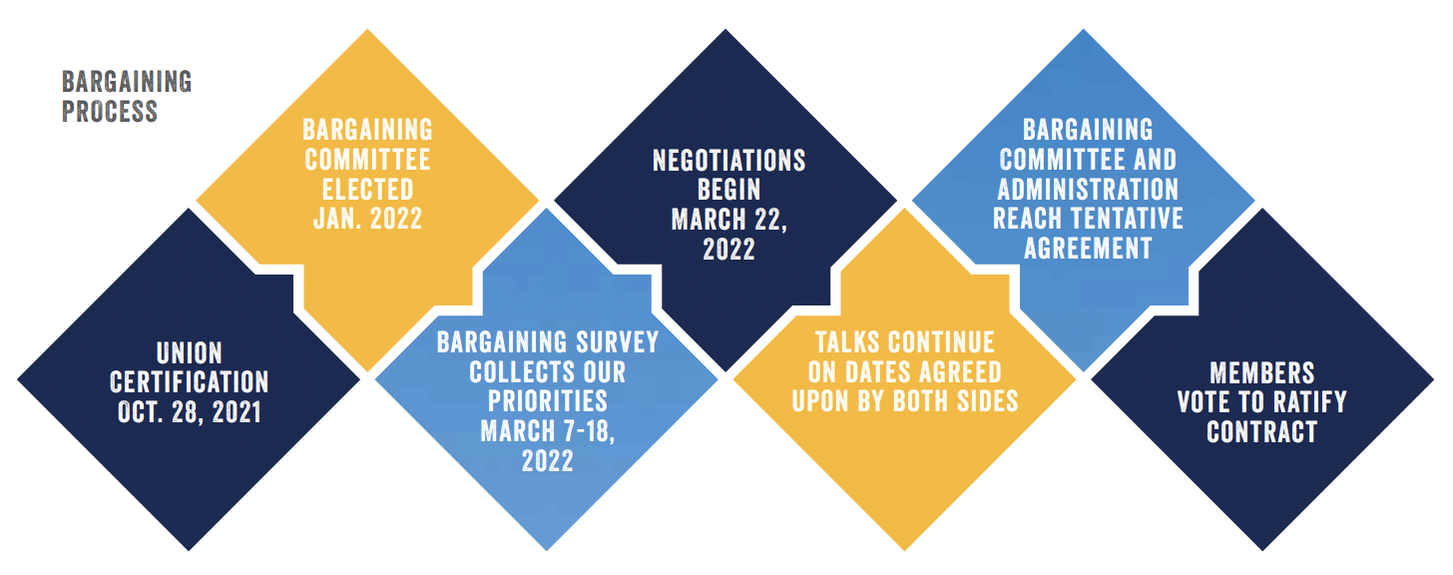We won our union! Now what?
Now that our union is certified, we’ll begin collective bargaining, the process of negotiating our first contract.
Under Pennsylvania law, we have the right to collectively bargain with our employer over the terms and conditions of our work.
Under Pennsylvania law, we have the right to collectively bargain with our employer over the terms and conditions of our work.
What is collective bargaining?
Collective bargaining is the legal process for reaching a contract (also known as a Collective Bargaining Agreement) between a labor union and an employer, in this case the University of Pittsburgh’s administration. The contract covers the terms and conditions of employment, including pay, sick and family leave, benefits, transparency issues, job security, and protections against unfair treatment or termination.
Both our union and the administration have an obligation to bargain in good faith. That means the administration is obligated to provide the union with needed information, move proposals forward, and refrain from intimidating or threatening workers.
The goal in bargaining is to reach an agreement that will be beneficial to both the administration and faculty.
Both our union and the administration have an obligation to bargain in good faith. That means the administration is obligated to provide the union with needed information, move proposals forward, and refrain from intimidating or threatening workers.
The goal in bargaining is to reach an agreement that will be beneficial to both the administration and faculty.
Who negotiates our contract?
We voted to elect colleagues from all campuses, ranks, schools, and departments to our Council of Representatives in January 2021. Our Bargaining Committee came from within our Council of Representatives. Our Bargaining Committee represents us in negotiations with support from experienced USW staff, attorneys, and technical experts.
The Bargaining Committee will develop our agenda and proposals based on feedback from bargaining unit members.
The Bargaining Committee will develop our agenda and proposals based on feedback from bargaining unit members.
What happens in contract negotiations?
During negotiations, our Bargaining Committee and the university’s administration make and discuss proposals, caucus (meet separately), make counter proposals, test ideas, and look for ways to bridge differences.
What types of issues are discussed in negotiations?
Negotiations cover issues ranging from pay raises to safety conditions. Generally, proposals fall into two categories:
(1) economic proposals such as pay, healthcare, disability, and retirement benefits
(2) non-economic proposals such as health and safety issues, academic freedom, shared governance, and the grievance and arbitration procedure
(1) economic proposals such as pay, healthcare, disability, and retirement benefits
(2) non-economic proposals such as health and safety issues, academic freedom, shared governance, and the grievance and arbitration procedure
How do we win a fair contract?
In order to reach a fair contract, we must build and use our bargaining power. Bargaining power is our ability to achieve our goals in negotiations. It comes from our solidarity--our determination and willingness to stick together.
Building and displaying unity improves our ability to address our issues in negotiations. The administration is more likely to take us seriously if they see that faculty are united.
Sharing information and participating in solidarity activities sends a message to the administration that we are unified and firmly committed to reach a fair agreement that rewards our work.
Building and displaying unity improves our ability to address our issues in negotiations. The administration is more likely to take us seriously if they see that faculty are united.
Sharing information and participating in solidarity activities sends a message to the administration that we are unified and firmly committed to reach a fair agreement that rewards our work.
What is a Tentative Agreement?
A Tentative Agreement (TA) is when our Bargaining Committee has reached an agreement that they bring back to us, the membership, for a vote. Only union members will be eligible to vote on the TA.
We will have a chance to learn what is in the Tentative Agreement before we vote.
We will have a chance to learn what is in the Tentative Agreement before we vote.
How do we approve our contract?
All union members may vote to ratify (approve) or reject the Tentative Agreement. If a majority of votes favor ratifying the agreement, then the contract is passed and will go into effect as established in the agreement.


